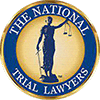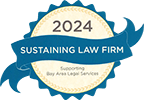The Bar Exam is a rigorous, standardized examination that tests the legal knowledge and skills of law school graduates seeking licensure to practice law in a given jurisdiction. Passing the Bar Exam is a critical step in becoming a licensed attorney and demonstrates a candidate’s competency to represent clients in legal matters. After completing a J.D. (Juris Doctor) degree in the United States or an LL.B. (Legum Baccalaureus) degree outside the United States, passing the Bar Exam is crucial for aspiring attorneys, proving their capacity to represent clients in legal matters. For those with an LL.M. (Master of Law) degree or a J.S.D. (Juridicae Scientiae Doctor) degree, this examination is also relevant in demonstrating specialized legal expertise. This guide offers a thorough overview of the Bar Exam’s structure and content, while also providing useful tips on preparation, scoring, and the journey to becoming a licensed attorney or a JP (Justice of the Peace).
Bar Exam Structure and Content
The Bar Exam typically consists of the Multistate Bar Examination (MBE), the Multistate Essay Examination (MEE), the Multistate Performance Test (MPT), and state-specific components, depending on the jurisdiction.
Multistate Bar Examination (MBE)
The MBE is a six-hour, 200-question multiple-choice examination that tests candidates’ knowledge of fundamental legal principles and their ability to apply these principles to factual situations. The MBE covers seven subject areas: Civil Procedure, Constitutional Law, Contracts, Criminal Law and Procedure, Evidence, Real Property, and Torts.
Strategies for success on the MBE include mastering the subject matter, practicing with sample questions, and developing effective test-taking techniques.
Multistate Essay Examination (MEE)
The MEE consists of six 30-minute essay questions that require candidates to demonstrate their ability to identify legal issues, apply relevant legal principles, and communicate their analysis effectively. The MEE covers a broad range of subjects, including Business Associations, Civil Procedure, Conflict of Laws, Constitutional Law, Contracts, Criminal Law and Procedure, Evidence, Family Law, Real Property, Torts, Trusts and Estates, and Uniform Commercial Code.
Strategies for success on the MEE include refining essay-writing skills, understanding the scope of tested subjects, and practicing with past MEE questions.
Multistate Performance Test (MPT)
The MPT is a three-hour examination that consists of two 90-minute tasks designed to assess candidates’ ability to perform real-world lawyering tasks, such as drafting legal documents, analyzing case files, and developing arguments. The MPT does not require candidates to have specific knowledge of the law but rather tests their ability to apply general legal principles and problem-solving skills to realistic situations.
Strategies for success on the MPT include familiarizing oneself with the task formats, practicing time management, and developing efficient strategies for analyzing and organizing information.
State-Specific Components
Some jurisdictions include state-specific components in their Bar Exams to test candidates’ knowledge of local laws and procedures. Examples of state-specific components include state-specific essay questions, multiple-choice questions, or even an entirely separate examination on local law.
Bar Exam Scoring
- MBE scoring – MBE scores are calculated based on the number of correct answers, with no penalties for incorrect responses. The maximum possible MBE score varies depending on the specific exam.
- MEE and MPT scoring – MEE and MPT answers are graded on a scale set by each jurisdiction, typically based on factors such as content, organization, and clarity. Some jurisdictions use a relative grading system, while others use an absolute grading system.
- State-specific component scoring – Scoring for state-specific components varies by jurisdiction and may involve a combination of relative and absolute grading.
- Weightage of exam components – Each jurisdiction determines the weight given to the MBE, MEE, MPT, and state-specific components in calculating the total Bar Exam score.
- Pass/fail determination – Each jurisdiction sets its own passing score, based on the total combined score from all exam components. Candidates must meet or exceed the passing score to pass the Bar Exam.
Bar Exam Preparation
Study materials and resources
Numerous resources are available for Bar Exam preparation, including commercial bar review courses, MBE, MEE, and MPT practice materials, and state-specific study materials. Candidates should choose resources that best suit their learning style, budget, and schedule.
Study strategies and best practices
Developing a study plan that covers all tested subjects, focusing on high-yield topics, and engaging in active learning through practice and review are essential for effective Bar Exam preparation. Candidates should also practice time management and develop test-taking techniques that maximize their performance.
Bar Exam Registration and Test Day Logistics
- Eligibility requirements – Eligibility requirements for the Bar Exam vary by jurisdiction but generally include the completion of a Juris Doctor (JD) degree from an accredited law school and meeting character and fitness requirements.
- Test dates and registration deadlines – The Bar Exam is typically administered twice a year, in February and July. Registration deadlines and fees vary by jurisdiction.
- Registration process and fees – Candidates must register for the Bar Exam with the appropriate state bar or board of law examiners. The registration process typically involves submitting an application, paying a fee, and providing documentation of eligibility.
- Accommodations for test takers with disabilities – Jurisdictions provide accommodations for test-takers with disabilities, such as extended testing time or additional breaks. Candidates must submit documentation of their disability and a request for accommodations during the registration process.
- Test center selection and requirements – Test centers are located throughout each jurisdiction. Candidates should choose a test center that is convenient for them and be prepared to present valid photo identification on test day.
- Test day procedures and rules – On test day, candidates should arrive at the test center early and bring required materials, such as photo identification and an acceptable form of payment for any outstanding fees. Test-takers must follow all test center rules and procedures, including prohibitions on electronic devices and other unauthorized materials.
After the Bar Exam
Score reporting and pass rates
Bar Exam scores are typically reported to candidates within a few months of the test date. Pass rates vary by jurisdiction and exam administration.
Admission to the state bar
Passing the Bar Exam is a critical step in becoming a licensed attorney, but other requirements for admission to the state bar, such as a character and fitness review, may also apply.
Maintaining bar membership and continuing legal education (CLE) requirements
Licensed attorneys must maintain their bar membership and complete continuing legal education requirements as prescribed by their jurisdiction to remain in good standing and practice law.
Reciprocity and transferring bar exam scores
Some jurisdictions allow licensed attorneys to apply for admission based on reciprocity or transfer their Bar Exam scores to seek licensure in another jurisdiction. Specific requirements and procedures vary by jurisdiction.
Conclusion
The Bar Exam plays a pivotal role in the legal profession, serving as a gateway to licensure and the practice of law. Thorough preparation, a strong understanding of the test format, and effective test-taking strategies are crucial for success on the Bar Exam. By mastering the content and structure of the exam, candidates can increase their chances of passing, secure their license to practice law, and embark on a rewarding legal career.







